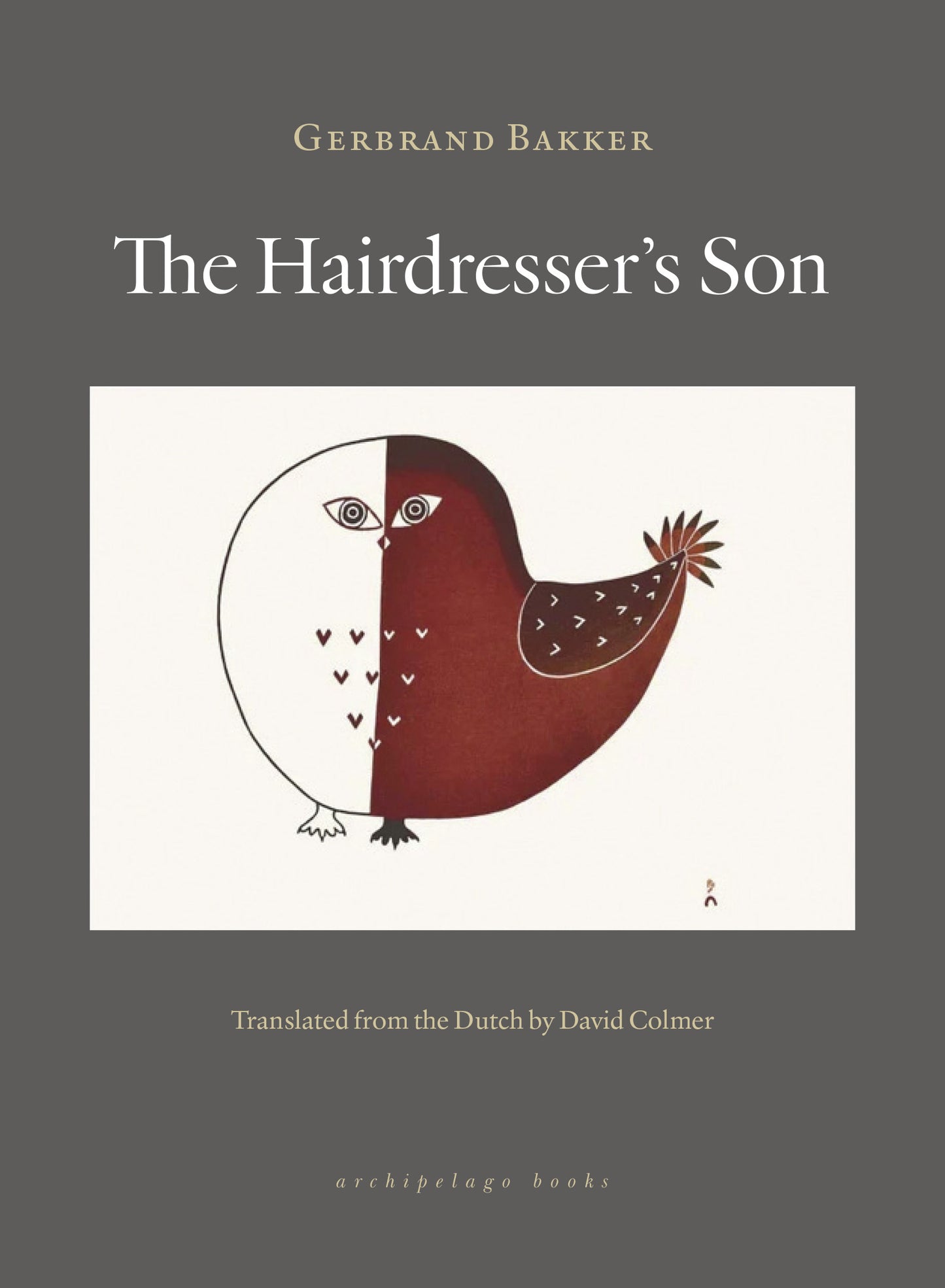A slow-burn delight of a novel.
—Rabih Alameddine, The New York Times
It’s an undercurrent of self-deprecation, shared by Bakker’s characters, that makes them so personable. We feel humor and kindness behind them; they are stuck, and we want to see them move forward . . . [In The Hairdresser's Son] Bakker has set himself a tightrope act of walking us and his characters across a moral breach . . . And because of the metafictional nature of the story, we are equally hoping that the author will resolve things in some morally palatable, ethically sound, aesthetically satisfying way. The narrative conundrum is an ethical conundrum. For me this is Bakker’s unique achievement: finding these moral situations—these blind spots of fantasy—and bringing them through confrontation to a conclusion that satisfies.
—Rebecca Starks, Cleveland Review of Books
Superbly translated . . . With The Hairdresser’s Son, Gerbrand Bakker has written a book that spotlights male loneliness in a manner that is just now being addressed by general society. It is an uncomfortable journey, but one well worth investigating.
—Benjamin Woodard, On the Seawall
Brilliant . . . [The Hairdresser's Son] shows us Simon living his life—honing razors, polishing mirrors, sweeping discarded hair—an ordinary life filled with wonder. The subtlety with which the reader comes to see Simon’s loneliness and desperation is magical (and depressing!). His condition is mine. It’s yours. It’s human.
—Rabih Alameddine, Literary Hub
To say that Gerbrand Bakker hasn’t forgotten how to write a novel would be an understatement. With The Hairdresser’s Son, he presents himself as one of the very best writers the Netherlands has to offer . . . With this vivid prose, he makes Simon fascinating, he makes him someone — perhaps the greatest and most loving thing a writer can do. For the reader this results in the almost magical illusion that is the most extraordinary (and, I believe, unforgettable) thing about this novel: the sense of having really seen someone. Gerbrand Bakker has written his characters to life.
—NRC Magazine
Enthralling in that although nothing feels invented, the pages still seem to exude something magical . . . Simply narrated scenes, terrifying and moving at once.
—De Groene Amsterdammer
The charm of Bakker’s book is how finely every element is balanced, how perfectly the story is paced . . . Bakker shows a fine gift for laconic comedy . . . The great pleasure of this novel is how it has just enough plot to allow us to relish its beautifully turned observations of birds and beasts, weather and water.—Tim Parks, New York Review of Books
This is a quiet book, humble in tone, with a fine, self-deprecating humor . . . It leaves the reader touched and with the impression of having seen and smelled the ever-damp Dutch platteland.
—Times Literary Supplement
In this appealing metafictional outing from Bakker, an Amsterdam barber searches for the truth about his long-lost father . . . endearing quotidian scenes . . . draw the reader into speculation about [his father's] reasons for leaving Amsterdam . . . and the plot thickens with surprising revelations from his point of view back in 1977.
—Publishers Weekly






